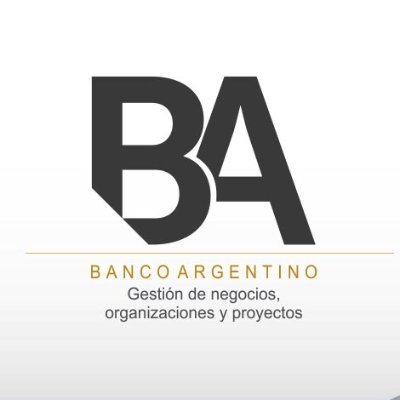By Flavia Tomaello, https://flaviatomaello.blog/, Instagram @flavia.tomaello
In some places time sits on the table. Montevideo has several of those corners, but few with the fidelity of this corner on Avenida 18 de Julio, where the aroma of coffee and dulce de leche mixes with the saline air that comes from the south. In front of the fountain with its famous bronze Gardel, Bar Facal has been a discreet witness to the life of the city for more than a century. There, the clocks seem to be in no hurry, and every sip of coffee tastes like history.
Founded in 1882, when the Uruguayan capital was still a young port, the bar began as a small family candy store. Since then, it has gone through wars, modernities and fashions without giving up its essence. Its walls saw generations of Montevideans parade: office workers and poets, travelers, students, politicians, tangueros and dreamers. In each of their tables there is something of the deepest Uruguay, the one that knows how to talk slowly and look into the eyes.
Over the years, Facal became much more than a bar: it became a living postcard of Montevideo. Its location, on the main artery of the city, made it a meeting point, a witness to changes and a symbol of permanence. Time is measured here in cups poured and stories shared.
A legacy in every detail
Walking along 18 de Julio without stopping at this corner would be to overlook an essential part of the urban soul. From the outside, the establishment preserves that nostalgic elegance that characterizes the cafes of yesteryear: canopies, wooden chairs, display cases that house sweets with names from another era. But upon entering, the atmosphere becomes unique: a mix of ritual and belonging.
Bar Facal has been able to update itself without losing its character. Recently, the family that runs it – direct descendants of its founders – undertook a careful restoration to improve accessibility and modernize the facilities, while keeping its original aesthetics intact. The idea was not to change him, but to preserve his soul. For this reason, the new spaces coexist with sepia photographs, collectible pieces and wood worn by the passage of time.
That coherence is what gives it charm. Nothing seems forced: the present and the past dialogue naturally. In the same space, tourists who discover the place for the first time and customers who have been sitting at the same table for half a century can meet. At Facal there is no stridency, but hospitality. Luxury is memory.
The taste of ours
Beyond its history, the bar is kept alive by what it offers. Its menu is a celebration of Uruguayan sweetness: from the classic coffee with milk served in a porcelain cup to the famous desserts with artisanal dulce de leche, the emblem of the house. Alfajores, dry doughs and hot chocolate are part of the daily ritual, but also part of the experience of the traveler who seeks authenticity.
The cuisine combines simplicity and flavor, with that attention that only places where each customer is an old friend have. Whoever enters for the first time discovers that service here is not a gesture, but an art learned over the years.
The secret of its permanence, perhaps, lies in that perfect mix between warmth and constancy. In a world that changes at dizzying speed, Facal continues to offer the same thing it offered in the beginning: a pause. A respite from the noise of traffic, a refuge where coffee becomes an excuse to think or talk.
Gardel’s corner
In front of the bar, the fountain with the figure of Carlos Gardel has become an icon of the city. Tourists approach to take photos, but Montevideans look at her with affection, as one would look at an old friend. On summer nights, the lights of the monument reflect on the water while tango music floats from the speakers, accompanied by the murmur of traffic.
Facal’s Gardel is not just a sculpture: it is a symbolic presence, a way of paying tribute to the link between Montevideo and tango. Around them, daily life continues: couples kissing, street artists, workers taking a break. It is a small urban setting where the city plays its most authentic role.
Living heritage
Bar Facal has been recognized as one of the oldest and most emblematic establishments in the country. But beyond its longevity, what truly sets it apart is its ability to remain contemporary without betraying its history. In a time where the ephemeral dominates, its permanence feels like an act of resistance.
This mix of tradition and modernity has made Facal also an example of accessibility and inclusion. Its recent renovation allowed the integration of architectural solutions that facilitate visits by all audiences, becoming the most accessible bar in South America. A gesture consistent with his spirit of hospitality and respect for the community.
The soul of Montevideo coffee
Visiting Facal is, in fact, a way to get to know Montevideo. Because in its atmosphere the identity of the city is summarized: serenity, gentle melancholy, elegance without show off. Here, time is not measured in minutes, but in conversations, in shared silences, in empty cups that are filled again.
Sitting next to its windows is looking at the city from within, with the feeling of belonging. Outside, July 18 continues its course; Inside, life slows down. The coffee cools slowly, but no one rushes the moment.
Perhaps that is what makes this place eternal: its way of reminding us that pleasure is not always in what is new, but in what remains. In the aroma that we recognize, in the greeting of the waiter who addresses us by name, in the cup that steams while Montevideo slowly passes in front of the window.
Facal is not just a bar. It is a declaration of identity, a celebration of the time lived, a corner where the city recognizes itself and reunites with itself.
Because there are cafes that you visit, and others—like this one—in which you simply stay.
You can move around Montevideo easily: Uber is a simple and well-known resource, the 1919 Celeritas Taxis will schedule any section for you, Transfer Transfers and Incoming Tourism can make your journey end-to-end.
For the Buenos Aires–Montevideo route, Buquebús operates with 25 weekly frequencies, maintaining daily departures and multiple schedules per day.
Discover more from LatamNoticias
Subscribe to get the latest posts sent to your email.





